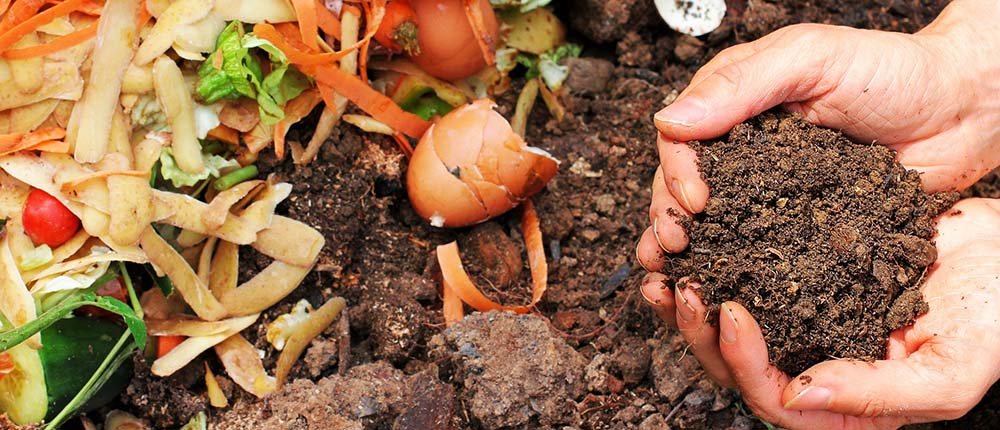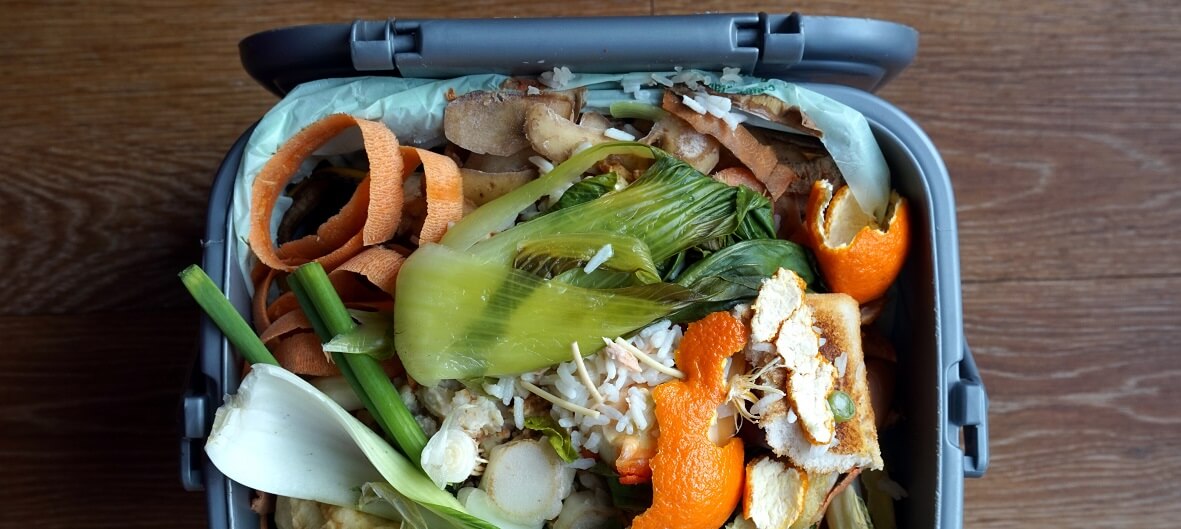In this article, we'll cover:
- How much waste do restaurants produce?
- Common restaurant materials that can be composted
- What are the benefits of composting?
- How can customers get involved?
- 6 tips to make composting easier at your business
How Much Waste Do Restaurants Produce?
According to the FDA, 30-40% of the U.S. food supply ends up wasted. While food waste happens at all stages of the supply chain, retailers and restaurants play a significant role.
In fact, it’s estimated that restaurants alone generate roughly 22-33 billion pounds of food waste every year. Approximately 10% of which is wasted before food even reaches the customer.
A significant amount of food is tossed after the preparation too. On average, about 55% of leftovers are left behind at the restaurant and 17% of meals go mostly uneaten.
This wasted food is also a contributor to climate change. When food waste is landfilled, it releases methane; a greenhouse gas that is 28 times more powerful than carbon dioxide.
How can we counteract this? Consider implementing a composting system in your restaurant or business. The start-up costs are minimal and the benefits are many.
It’s estimated that restaurants alone generate roughly 22-33 billion pounds of food waste every year. Approximately 10% of which is wasted before food even reaches the customer.
Common Restaurant Materials that Can Be Composted
Most restaurant operators choose to use a commercial service for composting due to space restrictions. More items can be composted commercially versus in a backyard setting too. Here is a list of common materials that can be commercially composted. Always check first with your specific provider.
- Fruit and vegetable scraps
- Eggshells & Dairy Products
- Bread & Pasta
- Non-dyed paper
- Meats, Bones & Fish
- Coffee grounds & Teabags
- BioBag compost bin liners & bags
- Compostable Cups & Take Out Containers

What Are The Benefits of Composting?
From improving local water sources to reducing our reliance on chemical fertilizers, the environmental benefits of composting are significant and an easy way for your business to take steps towards sustainability.
Additionally, upping your business’ composting game can help you minimize your hauling and disposal costs. Particularly because food waste contains a lot of water, making it much heavier and expensive to dispose of.
Composting is also a great way to connect with your community. You might discover partnership opportunities with local farms or gardeners who will happily accept your “waste”. For example, many breweries regularly donate spent grains for local livestock.
Beyond that, being green is a sought-after quality in today’s world. There’s no better way to stand apart from your competition than by doing the right thing. This is crucial as more than 50% of American consumers report that they’re more likely to choose a restaurant with eco-friendly practices. You can even get them involved in the composting process!
How Can Customers Get Involved?
If you offer on-site dining, consider providing compost services to your guests. Good Start Packaging offers printable signage you can use to label your receptacle bins.
If you only offer takeout, consider using compostable containers and educate your guests about the benefits, including how to properly dispose of them.
Westerly Kitchen, a meal delivery service in Seattle, Washington takes a full circle approach by composting in their own kitchen and using compostables in their business. This strategy has received overwhelming support from their customers and community.
6 Tips To Make Composting Easier At Your Business
If you’re ready to roll out composting at your business, consider the following tips.
- Tip #1: Find a local composting service.
Where ever you operate your business, chances are you have a private or public composting service nearby. Use our tool to Find a Composting Service near you too and compare your options.
- Tip #2: Put countertop compost bins all around your prep area to make them easy to access for staff.
Coffee grounds, carrot greens, and egg shells can all be transformed into valuable compost. Make it easy for your team to compost what they can by having bins close by.
- Tip #3: Line the bottom of the bins with newspaper.
One of the biggest concerns with compost collection is the smell but fortunately, it’s easy to address. Adding newspaper to your bins will absorb moisture and reduce odors. Also consider lining the bins with breathable, BPI-certified BioBags for easy cleanup. Then just transfer the contents of your countertop bins to larger sealed containers provided by your commercial compost service.
- Tip #4: Keep your compost bins somewhere cool.
Place your larger sealed compost containers in a dry, shaded, ventilated area. The contents will be less likely to cook into a smelly compost casserole, which will keep odors at bay.
- Tip #5: Educate your staff and customers.
Equip your team so that they’re ready to field any compost-related questions. It is helpful to have staff who understand the composting process, and they can explain the benefits to customers.
Also, educate your customers about your sustainability values. More and more consumers are deeply concerned about their environmental footprint. Let your customers know they are making a positive impact by choosing a business that composts and/or uses compostable containers.
- Tip #6: Use eco-friendly materials.
Replacing petroleum-based plastics and Styrofoam with compostable options instantly conveys your commitment to sustainability. It also lets customers know that your business is serious about operating sustainably. Customers will recognize and appreciate your efforts to supply compostable coffee cups or to-go boxes
Ready to Start Composting at Your Business?
It’s clear that composting in restaurants is not only necessary but also beneficial to our planet and the bottom line. Stand out against the competition, engage with your community, and transform food scraps into valuable material by starting composting today!




